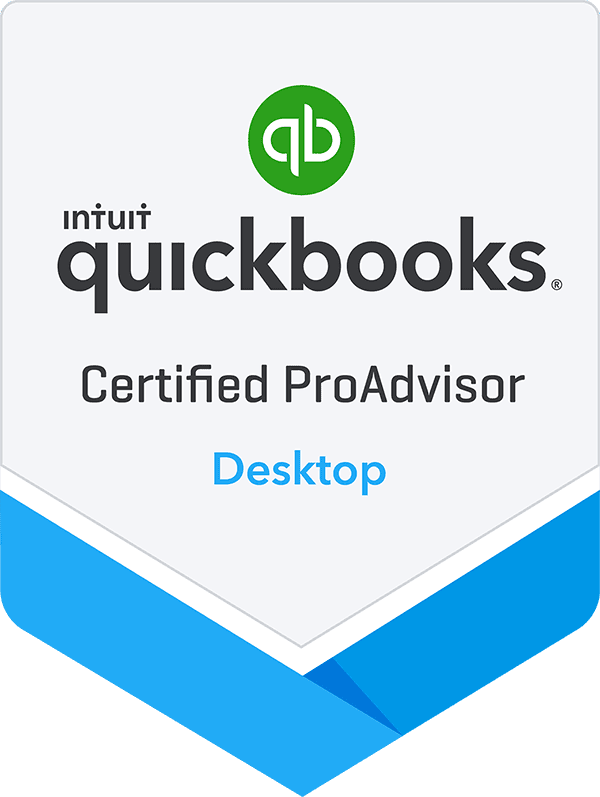
by Debbi Silva
If you’re on QuickBooks Desktop Pro or Premier, you’ve likely already heard about Intuit’s plan to phase out the popular desktop software. In its place, Intuit will be encouraging users to migrate to its cloud-based QuickBooks Online product. It will also continue to offer the Enterprise version of the QuickBooks Desktop product.
Not sure whether a migration to QuickBooks Online or an upgrade to QuickBooks Enterprise is the right path? We’ve put together considerations for each to help businesses decide.
Considerations: Upgrading to QuickBooks Enterprise
For those thinking about the upgrade to QuickBooks Enterprise, here are the top considerations:
- Reporting & Customization: QuickBooks Enterprise offers a robust set of features, including advanced inventory management, multi-currency support and advanced reporting and customization capabilities unavailable in QuickBooks Online. Read more about the many feature advantages of QuickBooks Desktop vs. QuickBooks Online here. QuickBooks does offer QuickBooks Online Advanced, which has brought Online a long way in terms of reporting features, but it still cannot measure up to QuickBooks Enterprise’s features.
- Business Complexity: If the business operates as multiple companies or subsidiaries, QuickBooks Enterprise may be the better choice. This is not only because of the advanced reporting features, but because the business will need to pay for multiple QuickBooks Online subscriptions to accommodate each entity, which can considerably increase costs. More on this below under: Cost.
- Level of Effort to Upgrade vs. Migrate: The move from QuickBooks Desktop Pro or Premier to QuickBooks Enterprise is an “upgrade” on the same platform (read: less complex), while the move to QuickBooks Online is a “migration” to a separate platform.
Upgrading to QuickBooks Enterprise is completed by simply exporting the company file in QuickBooks Desktop to Pro or Premier, then opening or restoring the Company inside of QuickBooks Enterprise.
- Cost: While QuickBooks Enterprise has a higher upfront cost when compared to QuickBooks Online, it may be cost-effective for larger, more complex organizations in the long run. Two criteria to look at when evaluating pricing are:
- Number of entities or organizations – QuickBooks Enterprise is $1,200 per year for 1 license/1 user and includes payroll. This one instance can accommodate unlimited entities or organizations (eg. subsidiaries of an organization). QuickBooks Online ranges from $90-200 depending on levels or features needed but can only support 1 entity or organization. For each additional entity, the business will need to pay an additional monthly charge. Long story short, more complex organizations will usually net out better cost-wise with QuickBooks Enterprise.
-
Number of users – The $1,200 QuickBooks Enterprise license includes just 1 user; it can run $2,400 a year for 3 users. Also make sure to consider the cost of remote hosting for multiple users if remote access is required.
Compare that to QuickBooks Online Advanced which costs $200/mo. ($2,400 a year) and includes 25 users, or QuickBooks Online ($90/mo.) which includes 5 users. Long story short, for one organization with many remote users, QuickBooks Online might be the better choice.
- Ease of Adoption: For organizations accustomed to the Desktop version, the upgrade maintains a similar interface. This means a much gentler learning curve for accounting or other employees working in the system.
- Accessibility: Desktop software is tied to a specific device, limiting accessibility compared to an online platform. That being said, QuickBooks Desktop can still be hosted in the cloud to enable multi-user access, collaboration and remote work.
- Hardware Requirements: QuickBooks Enterprise is memory hungry…a smaller organization with local computers may need to purchase new computers that can handle the memory requirements.
In summary, consider upgrading to QuickBooks Enterprise if your organization:
- Requires advanced inventory management
- Requires budget performance reporting (budget vs. actuals)
- Is made up of multiple entities or organizations
- Highly values or requires the customized reporting and setup capabilities that Desktop offers
Considerations: Migrating to QuickBooks Online
“QuickBooks Online is constantly evolving. With QuickBooks Online Advanced, it has certainly come a very long way. I think it’s only a matter of time before we start to see even more reporting features comparable to Enterprise available in QuickBooks Online Advanced.”
-Debbi Silva, Senior Accounting Specialist, Lucrum Consulting
For those thinking about migrating from Desktop Pro or Premier to QuickBooks Online, here are the top considerations:
- Level of Effort to Migrate vs. Upgrade: Migrating data to Online can be complex and requires careful planning and execution. If the organization has multiple apps currently integrated, review all the integrations. Those will then need to be configured once more inside QuickBooks Online. In some cases, data will not map perfectly and require new processes (eg. Enterprise can Classify Jobs vs. Classes while QuickBooks Online requires only one to be selected).
-
Reporting & Customization: While feature-rich, some advanced features in QuickBooks Enterprise are still not available in QuickBooks Online, even in the highest tier, QuickBooks Online Advanced. These features may not be necessary for certain businesses. Read more about the many feature advantages of QuickBooks Desktop vs. QuickBooks Online here.
In QuickBooks Online Advanced, job costing reports have come a long way. There are estimate vs. actual reports available, albeit those reports come out-of-the-box and are not highly customizable. QuickBooks Online Advanced still does not have Budget Performance Reporting to track budget vs. actuals. Investigate what reports are used and what is important first, to see whether this consideration is a make or break.
- Available Integrations: Online is best suited for integration as it seamlessly integrates with various business apps, such as e-commerce platforms and payment processors. There are still many integrations available for the Desktop version, so make sure just to check compatibility with the other business applications the organization would like to connect to QuickBooks before making the choice between Online migration or the Desktop upgrade.
- Subscription Cost: QuickBooks Online typically involves a subscription model, which is a predictable monthly cost, and, depending on business complexity and size, can be overall less expensive than running Enterprise. However, QuickBooks Enterprise may well be worth its cost over time for more complex businesses requiring the advanced reporting and customization features. See the QuickBooks Enterprise “Cost” section above for notes regarding the impact of business complexity and number of users on cost.
- Ease of Adoption: Transitioning to the Online version might require some adjustment for users accustomed to the Desktop product. The menu structure is completely different in QuickBooks Online vs. QuickBooks Desktop Pro and Premier, and users would need to familiarize themselves with a new nomenclature for each function.
- Accessibility & Collaboration: The cloud-based product allows collaboration with teams or accountants in real-time. QuickBooks Online allows anytime, anywhere access through an internet connection.
- Hardware Requirements: Online requires less powerful computers and IT infrastructure compared to running memory-hungry Enterprise locally.
- Automatic Updates: Updates are handled automatically by QuickBooks, ensuring the organization is always on the latest version. QuickBooks Enterprise also pushes periodic updates, but with Online, Intuit also handles data backups in the cloud, reducing IT burden and mitigating data loss risks.
In summary, consider migration to QuickBooks Online if your organization:
- Prioritizes accessibility, sharing, and integrations
- Does not need inventory management or budget performance reporting
- Does not need or require advanced reporting customization in QuickBooks
- Would prefer to pay in a subscription model, vs. making a larger up front investment
- Has many remote users in only one organization and no need for advanced reporting features – Online Advanced could mean a considerable cost savings

QuickBooks Desktop is Going Away
Should I migrate to QuickBooks Online or Upgrade to Enterpise? Get a customized plan from our experts.



